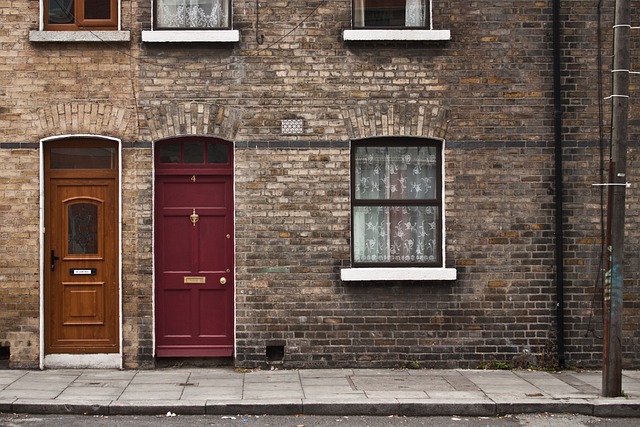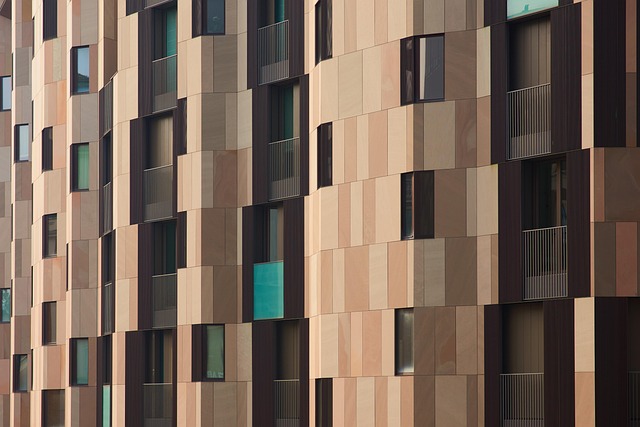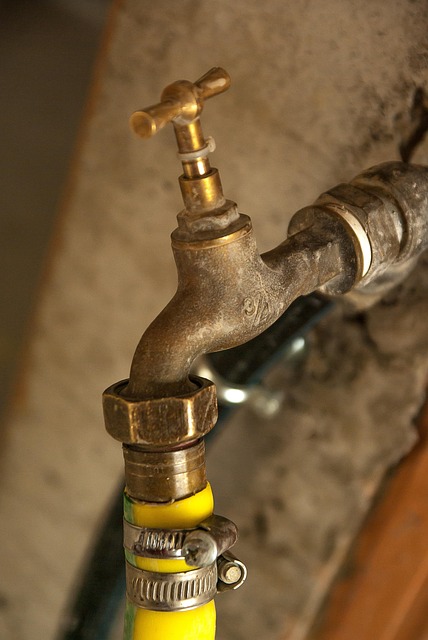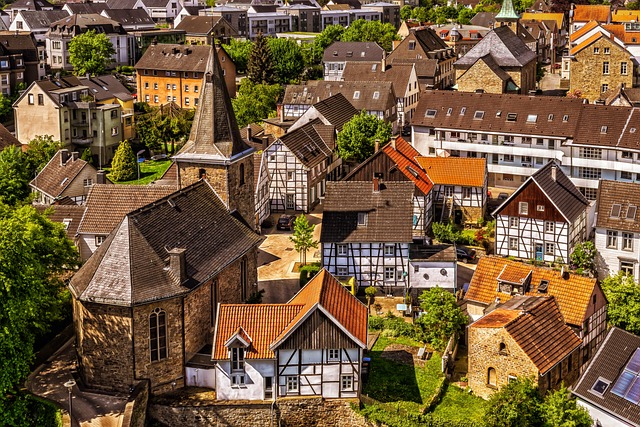Understanding your home's plumbing system is essential for maintenance or upgrades. Key components include water supply, drainage, and waste removal systems. Regular maintenance, proactive issue identification, and prompt professional action prevent severe problems. Reputable plumbers offer tailored solutions, ensuring efficient operation, preventing emergencies, reducing water waste, and promoting sustainability. Modern plumbing technologies enhance comfort and efficiency, with smart water heaters, automated controls, and high-efficiency fixtures. Installation begins with assessments and continues through tailored planning, material selection, and clear communication. Sustainable upgrades reduce water consumption and energy bills, contributing to environmental responsibility. Professional residential plumbing services ensure smooth operations and prevent costly DIY mistakes.
“Are you a homeowner in need of reliable residential plumbing services? This comprehensive guide is your ultimate resource for navigating the complex world of plumbing installations. From understanding your home’s intricate plumbing system to choosing the right expert, we cover it all. Learn about common issues, the latest technologies, and essential upgrades for energy efficiency. Whether you’re planning a renovation or just want to stay proactive, this article ensures you make informed decisions, avoiding costly mistakes with expert tips on residential plumbing services.”
Understanding Your Home's Plumbing System: A Comprehensive Overview

Understanding your home’s plumbing system is crucial for any homeowner looking to maintain or upgrade their residential plumbing services. At its core, a typical residential plumbing system includes several key components: water supply, drainage, and waste removal. Water enters your home through pipes connected to a local water main or a private well, depending on your location. This water is then distributed throughout the house via fixtures such as faucets, showers, and toilets.
The drainage system carries away used water and waste from these fixtures, connecting to larger pipes that eventually lead to the municipal sewer system or a septic tank. This intricate network requires regular maintenance and inspection to ensure it operates efficiently and effectively. By familiarizing yourself with how your plumbing system works, you can better identify potential issues early on, saving you time and money in the long run.
Identifying Common Residential Plumbing Issues and When to Call a Pro

Many homeowners often overlook minor plumbing issues, assuming they can fix them easily. However, ignoring these signs can lead to more significant problems down the line. Common residential plumbing services issues include low water pressure, leaky faucets, and persistent clogs. These problems may seem routine, but they could indicate underlying damage or blockages in your pipes.
If these issues persist or escalate, it’s time to call a professional. Prompt action can prevent costly repairs and ensure the longevity of your home’s plumbing system. A reputable plumbing service has the expertise to diagnose and fix problems accurately, offering solutions tailored to your needs.
The Benefits of Regular Maintenance Checks for Your Plumbing

Regular maintenance checks for your plumbing system are an essential aspect of home ownership that often goes overlooked. These routine inspections can catch potential issues early on, preventing small problems from turning into costly and time-consuming emergencies. By enlisting the help of professional residential plumbing services, homeowners can benefit from increased efficiency, reduced water waste, and the peace of mind that comes with knowing their plumbing is in top condition.
During these maintenance checks, experienced plumbers can identify leaks, clogs, or corrosion in pipes and fittings before they cause significant damage. They can also provide valuable advice on improving water pressure, optimizing heating systems, and enhancing overall plumbing performance. Regular maintenance not only saves money but also contributes to a more sustainable home by reducing water consumption and minimizing environmental impact.
Choosing the Right Plumber: Tips for Selecting Reputable Residential Plumbing Services

When selecting a plumber for your residential plumbing services, it’s crucial to consider their reputation and expertise. Start by asking for referrals from friends or neighbors who have recently had plumbing work done. Check online reviews on platforms like Google or Yelp to gauge customer satisfaction levels. Licensure and insurance are also essential; ensure the plumber is appropriately licensed and insured to protect against any potential risks or damages during the installation process.
Look for a plumber with extensive experience in residential plumbing, specializing in the specific needs of homes. They should be able to provide references for similar projects they’ve completed successfully. Additionally, clear communication is key. Choose a plumber who listens attentively to your concerns, offers transparent pricing, and keeps you informed throughout the installation process. This ensures a stress-free experience and high-quality workmanship for your residential plumbing services.
Modern Plumbing Technologies: Innovations Enhancing Home Comfort

Modern plumbing technologies are revolutionizing residential plumbing services, offering homeowners enhanced comfort and efficiency. Innovations such as smart water heaters and temperature-controlled shower systems allow for precise control over water temperatures, ensuring a consistent and comfortable bathing experience all year round. These advanced systems can also be integrated with home automation devices, enabling remote control and monitoring via smartphone apps.
Moreover, high-efficiency fixtures and water-saving technologies are becoming increasingly popular. Low-flow faucets and toilets not only reduce water consumption but also lower utility bills. Additionally, the use of modern plumbing materials, like PEX (cross-linked polyethylene) pipes, provides better insulation, reduces noise transmission, and is more resistant to corrosion, ensuring longer-lasting installations. These innovations contribute to a more sustainable and comfortable living environment for homeowners.
Plumbing Installation Process: From Assessment to Completion

The plumbing installation process for homeowners typically begins with a comprehensive assessment of the existing plumbing system and the homeowner’s needs. Residential plumbing services specialists will carefully inspect the property, taking into account factors like water pressure, pipe layout, and the age of the current pipes. This initial step is crucial as it allows them to tailor their work to specific requirements, ensuring both efficiency and effectiveness.
Once the assessment is complete, the experts will design a plan for installation or replacement. This involves selecting appropriate materials, determining the best routes for new pipes, and calculating the necessary equipment. The actual installation then proceeds in stages, from laying the groundwork to connecting fixtures and appliances. Throughout this process, homeowners can expect excellent communication from the plumbers, who will keep them informed about progress, potential challenges, and completion timelines.
Essential Plumbing Upgrades for Energy Efficiency and Water Conservation

In today’s eco-conscious world, homeowners are increasingly looking for ways to make their homes more energy-efficient and sustainable. One often-overlooked area of improvement is residential plumbing services. Upgrading your plumbing can significantly reduce water consumption and lower utility bills. For instance, installing low-flow showerheads and faucets can cut down water usage by up to 60% without compromising performance. Additionally, replacing old toilets with high-efficiency models can save a substantial amount of water per flush, contributing to both water conservation and energy efficiency.
Other essential plumbing upgrades include the installation of smart thermostats that optimize water heating based on actual usage patterns, and energy-efficient appliances. Modern water heaters, for example, come with advanced insulation and efficient combustion systems that reduce heat loss, thereby decreasing energy consumption. By combining these measures, homeowners can not only reduce their environmental footprint but also enjoy long-term savings on utility expenses, making residential plumbing services an investment worth considering.
Common Mistakes to Avoid During Plumbing Installations

When it comes to plumbing installations, homeowners often make mistakes that can lead to costly repairs and inconvenience down the line. One common error is attempting DIY installations without proper knowledge or experience. Plumbing systems are intricate and require precise connections; a slight misstep can cause leaks or even structural damage. It’s best to hire licensed professionals for residential plumbing services, ensuring the work is done correctly and safely.
Another mistake to avoid is neglecting regular maintenance. Plumbing fixtures and pipes collect debris and mineral deposits over time, leading to clogs and reduced water pressure. Regular inspections and cleaning can prevent these issues. Homeowners should also be mindful of their water usage; excessive flushing or inefficient appliances can strain plumbing systems. Understanding these common pitfalls helps homeowners make informed decisions, ensuring smooth operations for years to come.
